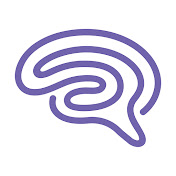
An AI detector program called Originality.ai has brought my writing career to a heartbreaking standstill. For an undisclosed reason, all of my fully human writing flags a 60-95% probability of AI authoring. My client trusted this score over me, a tenured writer with proof of authorship.
When I reached out to Originality.ai, their only proposed solution was downloading their Google Docs plugin and purchasing credits to run reports to prove each document’s authenticity. I noted that they could gather this same information for free using Version History in Google Docs. I received no comment from my client, editor, or Originality.
When the first murmurs of AI threatening writers’ livelihoods began to circulate, I figured a few unscrupulous media companies and publishers would cut costs by sacrificing the humanity of the written word for free, instantaneous manuscripts ready to flash edit and publish. While that nightmare came true in some sectors of the digital writing industry, my personal experience has been quite different.
In the Generative AI era, digital publishing companies are diverging, one type seeking to save a buck with automation and the other vehemently opposing AI-generated content in any form. Out of this schism grew a desire to detect AI-written content. Despite technological limitations, numerous AI detectors emerged, promising they can confidently detect artificial content…for a fee.
Unfortunately, detecting AI-generated content is a new and poorly understood process. OpenAI themselves recently discontinued their detector due to inaccuracy, and they made ChatGPT. Not all companies are operating on a basis of such honesty.
I made the difficult decision to terminate my relationship with this long-time client because they wanted me to pay for these reports out of pocket. I thought it would be attainable to find a new gig at a company that’s not policing its writers with AI. However, nearly every site I approach uses one of these faulty tools to vet candidates. I now have very few employment options in the digital writing industry.
There are numerous complaints about the reliability of this software and mounting anecdotal evidence that these detectors are false-flagging neurodivergent authors as AI. I live with obsessive-compulsive disorder, which makes my writing very formulaic and grammatical. This meticulousness has always been a desirable characteristic in easy-to-read blogs and guides. Well, up until now.
Originality claims its tool is 97.5% accurate, but this figure does not stand up to real-world scrutiny. They tell our clients that AI-flagged content will get penalized in search results, which Google outright refuted. Plus, there is dishonesty in creating a problem out of thin air and turning around to sell the solution to those most impacted.
I urge other freelance writers unfairly maligned by an AI detector to reach out in solidarity to NWU to ensure our ability to express our natural voices without fear of discrimination.

 NWU is the sole provider of IFJ Press Passes to freelance journalists in the U.S.
NWU is the sole provider of IFJ Press Passes to freelance journalists in the U.S.